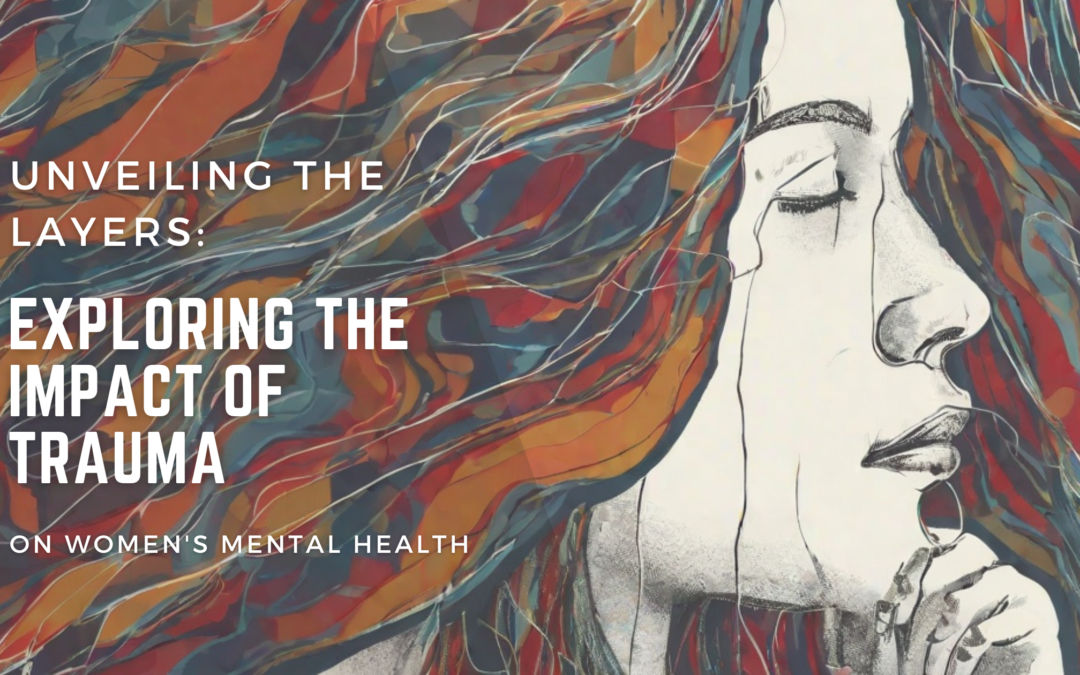Trauma is an intricate tapestry of experiences that can leave indelible imprints on an individual’s mental health. For women, navigating the aftermath of trauma involves facing unique challenges that ripple through various aspects of their lives. In this article, we embark on a journey to unravel the layers of how trauma profoundly affects women’s mental well-being, examining the emotional, psychological, and even physiological dimensions of its impact.
Did You Know?
- It is estimated that around 55-60% of women experience at least one traumatic event in their lifetime.
- Women who experience childhood trauma, such as abuse or neglect, are at a higher risk of developing mental health issues later in life.
- Trauma can have long-term effects on physical health. Women who have experienced trauma may be at a higher risk of developing chronic conditions such as cardiovascular disease, diabetes, and autoimmune disorders.
- Women are more likely than men to develop post-traumatic stress disorder (PTSD) after experiencing a traumatic event.
The Emotional Toll of Trauma
At the heart of trauma lies a spectrum of emotions, each layer contributing to the intricate tapestry of a woman’s mental health. Fear, anxiety, shame, and guilt are just a few threads woven into this complex emotional landscape. Unpacking these emotions is a crucial step in the recovery process, as unprocessed feelings can become the silent architects of ongoing mental health challenges.
Psychological Consequences
 Trauma shapes not only a woman’s experiences but also her perception of herself, others, and the world. The psychological consequences can be far-reaching, manifesting as:
Trauma shapes not only a woman’s experiences but also her perception of herself, others, and the world. The psychological consequences can be far-reaching, manifesting as:
- Depression
- Anxiety disorders
- Or post-traumatic stress disorder (PTSD)
Understanding these consequences is pivotal in crafting tailored approaches to mental health recovery.
Coping Mechanisms and Maladaptive Behaviors
In the aftermath of trauma, women often adopt coping mechanisms to navigate the overwhelming emotions. Some mechanisms are healthy, while others may lead to maladaptive behaviors. Exploring these coping strategies sheds light on the intricacies of resilience and the potential pitfalls that can hinder the recovery journey.
“The human capacity for burden is like bamboo—
far more flexible than you’d ever believe at first glance.” – Jodi Picoult
Physical Manifestations of Trauma
The mind and body are intricately connected, and trauma can manifest in physical health issues. The release of stress hormones during traumatic experiences can contribute to a range of physical health challenges. Understanding this mind-body connection is essential for a holistic approach to women’s mental health recovery.
“The body remembers the trauma, the mind may forget, but the body never forgets.”
– Bessel van der Kolk
Societal and Cultural Influences
The impact of trauma is not isolated; it echoes through societal and cultural spheres. Women may encounter additional challenges due to societal expectations, stereotypes, and stigmas surrounding trauma. Recognizing and challenging these influences is crucial for creating a supportive environment that facilitates healing.
To truly understand the impact of trauma on women’s mental health is to acknowledge the multi-dimensional nature of their experiences. By unraveling the layers of emotional, psychological, and societal consequences, we pave the way for a more compassionate and comprehensive approach to recovery.
In my upcoming articles and posts, I will delve into practical strategies, resources, and empowering narratives of women on their journey from trauma to resilience. Together, let us champion the scars of the past and unveil the strength that emerges from the depths of adversity.
Ready to enter your championship season? Schedule a discovery call to begin your empowering journey.


Recent Comments